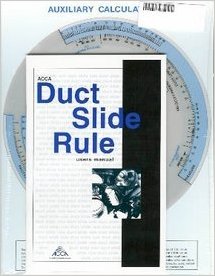AHRI has filed a petition for review in the U.S. Court of Appeals for the 5th Circuit of the Department of Energy’s (DOE) final rule regarding energy conservation standards for commercial walk-in coolers and freezers (WICF). Prior to this petition for judicial review, the Air-Conditioning, Heating, and Refrigeration Institute submitted a petition to DOE for reconsideration under the Administrative Procedures Act, requesting that the agency correct errors in the final rule.
“We are hopeful that the petition for reconsideration will lead to corrections in the final rule, and that the petition for review will be unnecessary,” said AHRI President and CEO Stephen Yurek.
AHRI was required to file a petition for review by August 4 to maintain its right to challenge the rule. AHRI will ask the court to hold the petition for review in abeyance until DOE responds to the petition for reconsideration.
The rule establishes for the first time minimum energy efficiency standards expressed in terms of annual walk-in energy factor for various equipment classes, which will significantly impact manufacturers and consumers of this equipment. In the final rule, AHRI claims the DOE set efficiency levels above the agency’s own determination of what the maximum technology is for some types of this equipment. The institute says this is in direct violation of the core principle of the Energy Policy and Conservation Act, which stipulates that efficiency rules be based on what is technologically feasible. In addition, DOE made such substantial changes to the rule between the notice of proposed rulemaking and issuance of the final rule (including the addition of 200 pages to the supporting analysis document) that, in AHRI’s view, a supplemental notice of proposed rulemaking should have been issued to allow for additional stakeholder comment and review.
“We have pointed out many times that our industry has a proud history of innovation, producing highly efficient, affordable HVACR and water heating equipment that increases the quality of life for all Americans,” said Yurek. “The equipment in question is no exception to that proud history, and we are disappointed that DOE chose to ignore the technical reality and declined to take the time to receive the input necessary to ensure the rule is based on accurate information and sound analysis. This has forced us to diverge from our preferred practice of collaboration and instead seek legal redress.
“We have collaborated with DOE and other government agencies for decades on energy efficiency standards that are economically justified and technologically feasible, that benefit consumers, and that will deliver actual energy savings rather than promote press release aspirations of energy savings,” Yurek added. “In issuing this final rule on WICF equipment, DOE exceeded its statutory authority and failed to comply with agency rulemaking requirements, and as a result we have no choice but to challenge the legality of the rule.”









